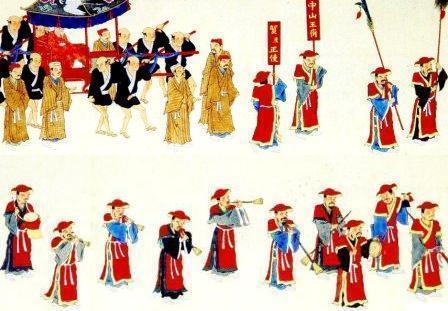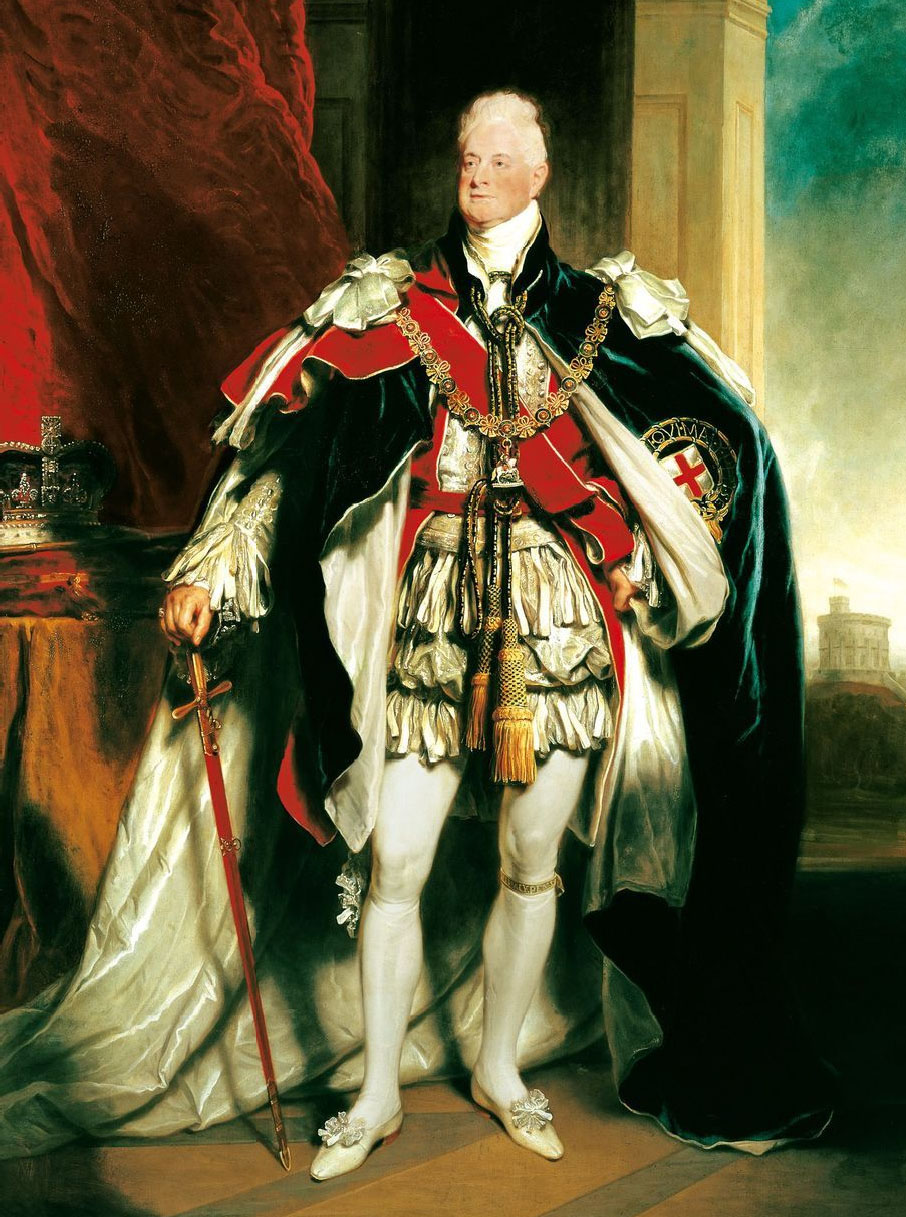|
Oroku Ryōwa
, also known by his Chinese style name , was a bureaucrat of the Ryukyu Kingdom. Oroku Ryōwa was a son of Hamamoto Ryōkyō (). He was adopted by Oroku Ryōei () because Ryōei had no heir. Later, he became the tenth head of the aristocratic family called Ba-uji Oroku Dunchi (). King Shō Kō dispatched a gratitude envoy for his accession to Edo, Japan in 1806. Prince Yuntanza Chōei (, also known as Shō Tairetsu ) and Oroku Ryōwa were appointed as and respectively. They sailed back in the next year. He served as a member of ''Sanshikan The ''Sanshikan'' ( ), or Council of Three, was a government body of the Ryūkyū Kingdom, which originally developed out of a council of regents. It emerged in 1556, when the young Shō Gen, who was speech disorder, mute, ascended to the throne ...'' from 1811 to 1818. References 1765 births 1818 deaths Ueekata Sanshikan 18th-century Ryukyuan people 19th-century Ryukyuan people {{gov-bio-stub ... [...More Info...] [...Related Items...] OR: [Wikipedia] [Google] [Baidu] |
Sanshikan
The ''Sanshikan'' ( ), or Council of Three, was a government body of the Ryūkyū Kingdom, which originally developed out of a council of regents. It emerged in 1556, when the young Shō Gen, who was speech disorder, mute, ascended to the throne of Ryūkyū. The council of regents that formed in order to handle this challenge and manage the country on the king's behalf soon grew into an established and powerful government organ. Shō Gen died in 1571, but the Council remained, acting alongside the successive kings in managing the affairs of government. In fact, the ''Articles Subscribed to by the King's Councillors'', which bound the royal government in loyalty and servitude to the Japanese ''daimyō'' of Satsuma Domain, Satsuma, explicitly prohibit the king from "entrust[ing] the conduct of public affairs in the islands to any persons other than San-shi-kuan".Kerr p163. Over time, the Sanshikan eclipsed the power and prestige of the ''sessei'', a post which is often translated as ... [...More Info...] [...Related Items...] OR: [Wikipedia] [Google] [Baidu] |
Ryukyuan Missions To Edo
Over the course of Japan's Edo period, the Ryūkyū Kingdom sent eighteen , the capital of Tokugawa Japan. The unique pattern of these diplomatic exchanges evolved from models established by the Chinese, but without denoting any predetermined relationship to China or to the Chinese world order. The Kingdom became a vassal to the Japanese feudal domain ('' han'') of Satsuma following Satsuma's 1609 invasion of Ryūkyū, and as such were expected to pay tribute to the shogunate; the missions also served as a great source of prestige for Satsuma, the only ''han'' to claim any foreign polity, let alone a kingdom, as its vassal.. Evolving relationships Royal princes or top-ranking officials in the royal government served as chief envoys, and were accompanied by merchants, craftsmen, scholars, and other government officials as they journeyed first by sea to the ''Ryūkyū-kan'' (琉球館) in Kagoshima, an institution which served a role similar to a consulate for the Ryūkyū Kingd ... [...More Info...] [...Related Items...] OR: [Wikipedia] [Google] [Baidu] |
1818 Deaths
Events January–March * January 1 ** Battle of Koregaon: Troops of the British East India Company score a decisive victory over the Maratha Confederacy, Maratha Empire. ** English author Mary Shelley publishes the novel ''Frankenstein'' anonymously. * January 3 (21:52 UTC) – Venus Occultation, occults Jupiter. It is the last occultation of one planet by another before November 22, 2065. * January 6 – The Treaty of Mandeswar brings an end to the Third Anglo-Maratha War, ending the dominance of Marathas, and enhancing the power of the British East India Company, which controls territory occupied by 180 million Demographics of India, Indians. * January 12 – The Dandy horse (''Laufmaschine'' bicycle) is patented by Karl Drais in Mannheim. * February 3 – Jeremiah Chubb is granted a British patent for the Chubb detector lock. * February 4 – Writer Walter Scott finds the Honours of Scotland in Edinburgh Castle. * February 5 – Upon his death, King Charles XIII ... [...More Info...] [...Related Items...] OR: [Wikipedia] [Google] [Baidu] |
1765 Births
Events January–March * January 23 – Prince Joseph of Austria marries Princess Maria Josepha of Bavaria in Vienna. * January 29 – One week before his death, Mir Jafar, who had been enthroned as the Nawab of Bengal and ruler of the Bengali people with the support and protection of the British East India Company, abdicates in favor of his 18-year-old son, Najmuddin Ali Khan. * February 8 **Frederick the Great, the King of Prussia, issues a decree abolishing the historic punishments against unmarried women in Germany for "sex crimes", particularly the ''Hurenstrafen'' (literally "whore shaming") practices of public humiliation. ** Isaac Barré, a member of the British House of Commons for Wycombe and a veteran of the French and Indian War in the British American colonies, coins the term "Sons of Liberty" in a rebuttal to Charles Townshend's derisive description of the American colonists during the introduction of the proposed Stamp Act. Barré notes tha ... [...More Info...] [...Related Items...] OR: [Wikipedia] [Google] [Baidu] |
Oroku Ryōkyō
, also known by his Chinese-style name , was a bureaucrat of Ryukyu Kingdom.Oroku Ryōkyō " ''Okinawa konpakuto jiten'' (沖縄コンパクト事典, "Okinawa Compact Encyclopedia"). Oroku Ryōkyō born to an aristocrat family called '' Ba-uji Oroku Dunchi'' (), and was given the name . He was the eldest son of Oroku Ryōwa. He was appointed as by King in 1808 and danced '''' for the entert ... [...More Info...] [...Related Items...] OR: [Wikipedia] [Google] [Baidu] |
Sanshikan
The ''Sanshikan'' ( ), or Council of Three, was a government body of the Ryūkyū Kingdom, which originally developed out of a council of regents. It emerged in 1556, when the young Shō Gen, who was speech disorder, mute, ascended to the throne of Ryūkyū. The council of regents that formed in order to handle this challenge and manage the country on the king's behalf soon grew into an established and powerful government organ. Shō Gen died in 1571, but the Council remained, acting alongside the successive kings in managing the affairs of government. In fact, the ''Articles Subscribed to by the King's Councillors'', which bound the royal government in loyalty and servitude to the Japanese ''daimyō'' of Satsuma Domain, Satsuma, explicitly prohibit the king from "entrust[ing] the conduct of public affairs in the islands to any persons other than San-shi-kuan".Kerr p163. Over time, the Sanshikan eclipsed the power and prestige of the ''sessei'', a post which is often translated as ... [...More Info...] [...Related Items...] OR: [Wikipedia] [Google] [Baidu] |
Chūzan Seifu
was an official history of the Ryūkyū Kingdom compiled between 1697 and 1701 by a group of scholar-officials led by Sai Taku. It was a continuation of the '' Chūzan Seikan''. It is composed of 19 volumes, one of which is devoted to correspondence between the kingdom and the Satsuma Domain. It also describes the founding of the Chinese community in Okinawa after the arrival of "thirty-six families" of "people from Min" after permission was granted by Emperor Hongwu. Later, it was rewritten into Classical Chinese Classical Chinese is the language in which the classics of Chinese literature were written, from . For millennia thereafter, the written Chinese used in these works was imitated and iterated upon by scholars in a form now called Literary ... by Sai Taku's famous son Sai On in 1724, and expanded each year until 1876. See also * List of Cultural Properties of Japan - writings (Okinawa) * Chūzan Seikan * Kyūyō References 1701 non-fiction books 18th ... [...More Info...] [...Related Items...] OR: [Wikipedia] [Google] [Baidu] |
Yuntanza Chōei
, also known by and his Chinese style name , was a prince of Ryukyu Kingdom.Yuntanza Chōei " ''Okinawa konpakuto jiten'' (沖縄コンパクト事典, "Okinawa Compact Encyclopedia"). Prince Yuntanza was the second head of a royal family called '' Yuntanza Udun'' (). His father was . Rizō, Takeuchi. (1992). ''Okinawa-ken seishi kakei daijiten'' (). Tokyo: Kadokawa Shoten. King |
Japan
Japan is an island country in East Asia. Located in the Pacific Ocean off the northeast coast of the Asia, Asian mainland, it is bordered on the west by the Sea of Japan and extends from the Sea of Okhotsk in the north to the East China Sea in the south. The Japanese archipelago consists of four major islands—Hokkaido, Honshu, Shikoku, and Kyushu—and List of islands of Japan, thousands of smaller islands, covering . Japan has a population of over 123 million as of 2025, making it the List of countries and dependencies by population, eleventh-most populous country. The capital of Japan and List of cities in Japan, its largest city is Tokyo; the Greater Tokyo Area is the List of largest cities, largest metropolitan area in the world, with more than 37 million inhabitants as of 2024. Japan is divided into 47 Prefectures of Japan, administrative prefectures and List of regions of Japan, eight traditional regions. About three-quarters of Geography of Japan, the countr ... [...More Info...] [...Related Items...] OR: [Wikipedia] [Google] [Baidu] |
Shō Kō
(14 July 1787 – 5 July 1834) was a king of the Ryukyu Kingdom, who held the throne from 1804 to 1828, when he was forced to abdicate in favor of his son, Shō Iku. This was only the second time in the history of the kingdom that a king abdicated;Kerr, George H. ''Okinawa: The History of an Island People''. (revised ed.) Tokyo: Tuttle Publishing, 2003. p244. the 1477 abdication of Shō Sen'i was the first. Life It is said that towards the end of his reign, Shō Kō's "behavior became strange, unbalanced, and unpredictable." The ''Sanshikan'' (the council of the top three elder royal advisors) appealed to the government of Japan's Satsuma Domain and, with Satsuma's approval, forced Shō Kō to abdicate in 1828 and to retire to the countryside. An envoy mission was prepared to formally inform Beijing of the change in rulership, and a second royal manor was established in the countryside, to maintain the prestige and dignities appropriate to Shō Kō's status. Historian George H. ... [...More Info...] [...Related Items...] OR: [Wikipedia] [Google] [Baidu] |
Takehara Anshitsu
, also known by his Chinese style name , was a bureaucrat of Ryukyu Kingdom.Takehara Anshitsu " ''Okinawa konpakuto jiten'' (沖縄コンパクト事典, "Okinawa Compact Encyclopedia"). Takehara Anshitsu was born to an aristocrat family called Mō-uji Misato Dunchi (). He was the eldest son of Takehara Anshun (). He succeeded as the head of Mō-shi Misato Dunchi in 1792, and was given Misato '''' (modern a part of |
Rizō Takeuchi
was a Japanese historian. He is best known for his work on historical records pertaining to the ancient and Middle Ages of History of Japan, Japanese history. Background Takeuchi sik born in Aichi Prefecture on December 20, 1907. He graduated from the University of Tokyo, Tōkyō Imperial University in 1930 where he studied Japanese history.Encyclopædia Britannica (2007)Nihon Rekishi Daijiten (2000-2001) Career Upon graduation, he began work at the Historiographical Institute of the University of Tokyo, Historiographical Institute of the Imperial University of Tokyo, where he eventually became the director in 1965. He taught at the Kyushu University, Kyūshū University, the Historiographical Institute of the University of Tokyo, and Waseda University. Takeuchi's research focused on temple economic systems, Heian period shōen, and political history of the Ritsuryō state. Over the course of his career, Takeuchi was awarded several awards for his many contributions to rese ... [...More Info...] [...Related Items...] OR: [Wikipedia] [Google] [Baidu] |


